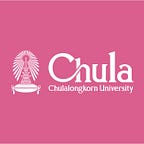AristoScan Test Kit for DNA Detection of Herbs with Kidney Cancer-Causing Aristolochic Acid
“A Quick and field-deployable CRISPR-Cas12a diagnostic kit for the DNA detection of poisonous plants containing aristolochic acid, the compound that caused nephropathy,” an innovation from the Center of Excellence in DNA Barcoding of Thai Medicinal Plants, Faculty of Pharmaceutical Science, Chulalongkorn University, won the silver medal at “The 49th International Exhibition of Inventions Geneva” held on April 17–21, 2024, in Geneva, Switzerland.
The developer team includes Prof. Pol. Capt. Dr. Suchada Sukrong, Faculty of Pharmaceutical Science, Prof. Dr. Sunchai Payungporn, Faculty of Medicine, Dr. Patcharawalai Whongsiri, and Mr. Chayapol Tungphatthong, Faculty of Pharmaceutical Science, Chulalongkorn University.
”A Quick and field-deployable CRISPR-Cas12a diagnostic kit for the DNA detection of poisonous plants containing aristolochic acid, the compound that caused nephropathy” stemmed from the World Health Organization’s declaration of aristolochic acid as a carcinogen in humans, especially kidney cancer, and the Thai government’s ban on the use of all herbs containing aristolochic acid, including Krai-Krue herbal plant (Aristolochia pierei), a popular ingredient found in many traditional Thai medicine formulations. The Center of Excellence in DNA Barcoding of Thai Medicinal Plants, Faculty of Pharmaceutical Science, Chulalongkorn University, has conducted a survey and found Krai-Krue herbal plant still in the market and aristolochic acid in several Thai traditional medicine formulas, which may cause adverse effects on consumers and lead to kidney failure or kidney cancer. Therefore, a rapid and field-deployable DNA test kit using CRISPR-Cas12a technology, named “AristoScan,” was developed to detect herb contamination.
The AristoScan is the world’s first diagnostic kit that detects the DNA of herbal plants containing aristolochic acid using CRISPR-Cas12a technology. It requires no complex tools and was designed to detect all families of herbal plants that have been reported to contain aristolochic acid, namely, Aristolochia, Thottea, Asarum, and Saruma. It can reduce the period of detection from days to only 30 minutes.
Moreover, the results can be observed with the naked eye. The test is highly specific, accurate, and fast It can be used to detect toxic plants or herbal formulas containing aristolochic acid components, which is beneficial for agencies overseeing herbal medicines, entrepreneurs, and the general public. Additionally, the research on the AristoScan has led to the development of a platform that can be adapted to create other types of DNA test kits, such as for detecting narcotic plants, poisonous plants, meat contamination in halal food, as well as infectious diseases in humans, animals, and plants.
